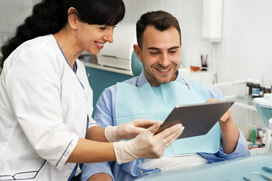
ALIGNER BIOMECHANICS
- Price: Starting from £300
- Date: To be confirmed
- Time: 8:30 AM – 5:30 PM
- Location: London (TBC)
Unlock the full potential of your orthodontic practice with our intensive one-day course on Aligner Biomechanics. Designed to cover every aligner system available, this course offers a deep dive into the mechanical principles that drive effective tooth movement using aligners. Whether you’re new to aligners or looking to enhance your expertise, you’ll gain practical experience and advanced techniques to elevate your treatment planning and execution. Join us to stay at the forefront of orthodontic technology and improve patient outcomes.
Aims:
- To provide a comprehensive understanding of the biomechanics behind aligner therapy.
- To enhance participants’ skills in planning and executing effective orthodontic treatments using aligners.
- To keep dental professionals updated with the latest advancements in orthodontic technology and techniques.
Objectives:
- Knowledge Development: Equip participants with in-depth knowledge of aligner biomechanics, including the indications, contraindications, and optimal movements achievable with aligners.
- Practical Skills: Provide hands-on experience in using aligners for various orthodontic corrections, such as Class II and III malocclusions, and vertical discrepancies.
- Advanced Techniques: Teach participants advanced techniques like force attachments, staging procedures, and the use of treatment auxiliaries to improve treatment outcomes.
- Clinical Simulation: Train participants in clinical simulation protocols to analyse and optimize treatment plans using digital tools.
- Problem-Solving: Develop participants’ ability to troubleshoot common issues with aligners and manage complex cases effectively.
- Professional Growth: Foster continuous professional development and encourage the adoption of cutting-edge practices in orthodontics.
Development Outcomes:
(C): Maintenance and development of knowledge and skill within your field of practice
Planned schedule:
09:00 – 10:00 – Biomechanics of Aligner Therapy
10:00 – 11:00 – The FROST Approach
11:00 – 11:30 – Break
11:30 – 12:30 – The Clinical Simulation Protocol
12:30 – 14:00 – Lunch
14:00 – 15:00 – Anterior Issues in Aligner Orthodontics
15:00 – 15:30 – Break
15:30 – 16:30 – Vertical Correction with Aligner Orthodontics
16:30 – 17:30 – Troubleshooting with Aligners and Cases Review
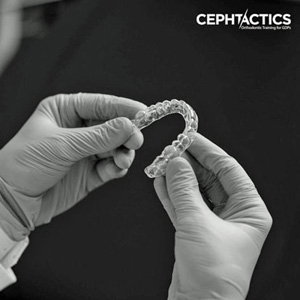
Oral Surgery Skills Course
This comprehensive course is designed to equip practitioners with essential oral surgery skills that are critical for daily practice as a General Dental Practitioner (GDP). In addition to foundational techniques, the course will offer more advanced training, beginning with basic implant procedures and progressing to full-mouth implant rehabilitation.
Course Outline:
1. Introduction and Live Surgery Demonstration
– Overview of the course and objectives.
– Opportunity to observe a live surgery, available if scheduled on a weekday.
2. Challenges in Oral Surgery for GDPs
– Common difficulties faced by General Dental Practitioners in routine practice.
– Techniques for administering local anaesthesia effectively.
– Extraction of complex teeth including root stumps, fragile or brittle teeth, and those treated with root canal therapy.
3. Surgical Extractions
– Step-by-step guidance on performing surgical extractions.
– How to raise a surgical flap.
– Types of surgical flaps and their appropriate use.
– Special considerations for flap design in aesthetically sensitive areas.
– Important anatomical landmarks and structures to be aware of during surgery.
4. Suturing Techniques
– Detailed exploration of different suture types.
– Various suturing methods and when to use them.
– Indications for each suturing technique.
– Overview of suture materials and their specific applications.
5. Hands-on Practical Session
– A dedicated session for participants to practice the techniques covered, providing real-world experience in oral surgery procedures.
This course is ideal for practitioners looking to enhance their surgical expertise and build confidence in handling more complex dental cases.
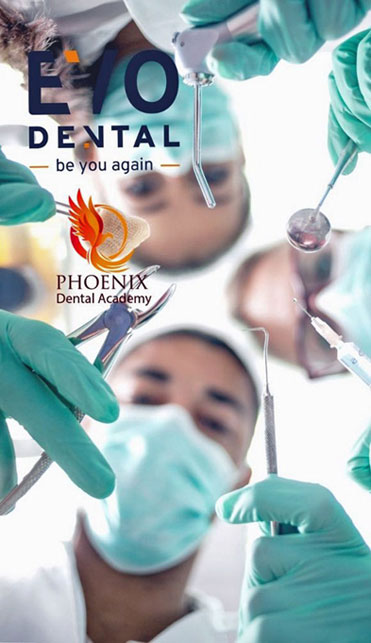
Endodontic Hands-On Course
- Price: Starting from £500
- Date: To be confirmed
- Time: 8:30 AM – 5:00 PM
- Location: London (TBC)
Course Includes:
- Diagnosis
- Rubber Dam Placement
- Access Cavities
- Post Removal
- Working Length Measurement
- Rotary Filing
- Hand Filing
- 3D Obturation
- Post-Op Restorations
- Pain Relief
- Includes hands on practical
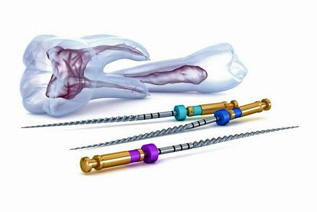
4 Day Manikin – Return To Practice
- Price: Starting from £850
Continuing Professional Development (CPD)
Upon completion, participants will earn 8 hours per day.
LUNCH INCLUDED
Day 1:
Class I
Class II with Amalgam Filling
Class II Composite Cavity Preparation
Class III Through and Through
Class IV Composite Build up
Day 2:
Amalgam Cusp Build
Labial Veneer
PFM Metal Ceramic Anterior Crown
FGC
Posterior PFM
Day 3:
Temporary Crown
Impression
Inlay
Onlay
3/4 Crown
Day 4:
RCT Access Opening and obturation
Rest Seat
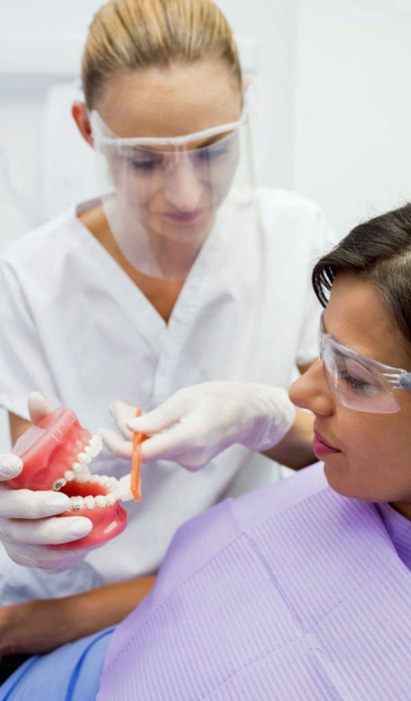
Return To Practice – Module 1
- Price: Starting from £1200
- Date: To be confirmed
- Time: 8:30 AM – 5:00 PM
- Location: London (TBC)
Learning Aims & Objectives
This course is designed to enhance your existing skills and support you in planning the next steps of your professional development.
Beginning Practice in the UK
The course will cover essential tips and strategies vital for ensuring an efficient and effective daily practice, including:
– Writing clear and concise clinical notes
– Managing patients and optimising your time
– Managing dental implants
– Utilising software tools for practice management
Hands-on Training
Participants will gain practical experience with:
– Hand scalers
– Ultrasonic scalers
– Local anaesthesia (LA) prescription
– Temporary dressings
– Re-cementing crowns
– Amalgam restorations
– Anterior composite restorations
– Glass ionomer restorations
– Performing pulpotomies
– Applying preformed crowns to primary teeth
– Extracting primary teeth
– Posterior composite restorations
– Tooth whitening procedures, including the fabrication of trays
Additional Topics Covered
– Understanding and managing litigation risks
– Comprehensive review of radiographic techniques
– Applying fissure sealants
– Removing sutures
– Using a rubber dam for isolation
– Basic local anaesthetic techniques
– In-depth exploration of radiographic imaging
Continuing Professional Development (CPD)
Upon completion, participants will earn 21 CPD hours.
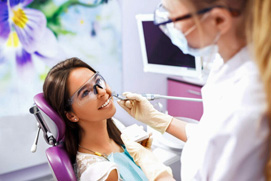
Dental Photography (Lecture)
- Price: Starting from £100
- Date: To be confirmed (Online)
- Time: 10:00 AM – 12:00 PM
Aim:
This lecture aims to introduce participants to the fundamentals of dental photography, focusing on how to effectively document both intraoral and extraoral images. Additionally, participants will learn about the various applications of dental photography in clinical practice, as well as essential techniques for post-processing images.
Objectives:
– Explore the diverse applications of dental photography in dentistry.
– Review different types of photography equipment, including guidance on selection, setup, and investment.
– Learn about camera settings and how to optimise them for dental photography.
– Understand the importance of lenses, flashes, and calibration for accurate imaging.
– Compare DSLR/mirrorless cameras with mobile devices, examining their advantages and disadvantages.
Learning Outcomes:
– Gain a solid understanding of the types of cameras and equipment best suited for dental photography.
– Develop insights into how photography can be used effectively in various dental procedures and documentation. – Enhance knowledge of camera settings to improve the quality of dental images.
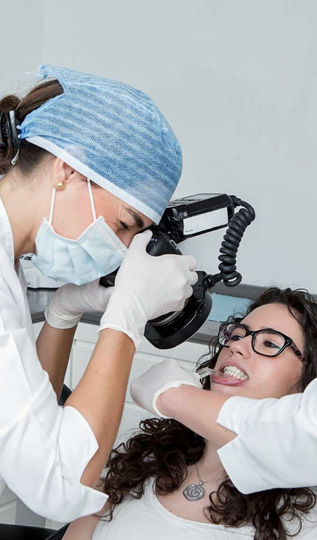
Dental Photography Course (1-Day Intensive Training)
- Price: Starting from £500
Course Overview:
This comprehensive one-day course is designed to equip dental professionals with the skills to effectively use cameras and photography equipment for clinical documentation and communication. You will learn how to take high-quality intraoral and extraoral images, explore post-processing techniques, and understand how to apply photography in various aspects of dentistry, including aesthetic and laboratory communication.
Key Topics Covered:
1. Introduction to Photography Concepts:
– Overview of photography fundamentals and their practical applications in clinical dentistry.
2. Photography for Aesthetic Dentistry:
– Techniques to capture images that enhance esthetic dental cases for accurate documentation and communication.
3. Clinical Photography Guidelines:
– Adherence to AACD (American Academy of Cosmetic Dentistry) and BACD (British Academy of Cosmetic Dentistry) standards for clinical photography.
4. Photography Equipment Selection and Setup:
– Comprehensive guide on choosing the right equipment (cameras, lenses, flashes) and setting up for optimal results.
– Calibration techniques for consistency and accuracy in clinical images.
5. Camera Settings and Techniques:
– Detailed instruction on camera settings and proper positioning for intraoral and extraoral photography.
6. Basic Image Processing and Documentation:
– Post-processing techniques to enhance images and take your clinical photography to a professional level.
7. Documentation for Professional Use:
– How to organise and prepare images for publications, case studies, and patient presentations.
8. Shade Matching and Laboratory Communication:
– Effective use of photography to communicate with dental labs for shade matching and product accuracy.
9. Tabletop Photography for Lab Products:
– Techniques for capturing high-quality images of dental products and materials.
10. Troubleshooting in Dental Photography:
– Solutions to common challenges faced in dental photography, ensuring consistency and quality.
11. Videography in Dentistry:
– An introduction to creating dental videos for clinical use and patient education.
12. Mobile Dental Photography Overview:
– A brief guide to the use of mobile devices for dental photography, including the benefits and limitations.
Learning Outcomes:
By the end of this course, participants will:
1. Gain an in-depth understanding of the different types of cameras and equipment used in dental photography.
2. Be able to confidently apply camera use in various dental contexts.
3. Develop a solid grasp of camera settings, enhancing the quality of clinical images.
4. Master the documentation of intraoral and extraoral photographs in a standardised format for presentations.
5. Learn how to effectively edit, crop, and create image collages using software.
6. Acquire foundational knowledge of videography in the dental setting.
7. Evaluate the advantages and disadvantages of using mobile phones for dental photography. This course is ideal for dental professionals looking to improve their documentation skills and incorporate high-quality photography into their clinical practice.
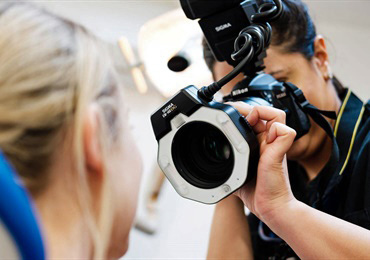
Communication, Consent, and Co-Diagnosis Training
- Price: Starting from £500
- Date: To be confirmed
- Time: 9:00 AM – 5:00 PM
- Location: London (TBC)
Aims and Objectives:
- Explore various methods of effective communication, including ethical approaches to patient interactions and sales.
- Learn strategies for confidently declining patient requests when necessary.
- Develop skills for collaborating with patients to reach a co-diagnosis, ensuring they feel involved in their care.
- Gain insights into the psychological aspects of patient communication and how this influences interactions.
- Understand the components of informed consent and the importance of shared decision-making in patient care.
Communication Focus:
- Master the techniques of both active and passive listening.
- Emphasise listening to understand the patient’s needs, rather than simply preparing to respond.
- Learn patient-centered methods for gathering information that supports future co-diagnosis.
Co-Diagnosis:
- Utilise patient-driven information gathering to support collaborative diagnosis.
- Apply emotional intelligence to listen empathetically and respond effectively during patient interactions.
Consent:
- Learn about the various forms of consent and understand when and how to apply each in different situations.
- Ensure patients fully comprehend their current dental condition and all aspects of proposed treatments.
Addressing Objections:
- Distinguish between positive and negative cues during patient discussions.
- Understand and manage patient fears, anxieties, and concerns from their perspective.
CPD Hours:
- Earn 6 Continuing Professional Development (CPD) hours.
